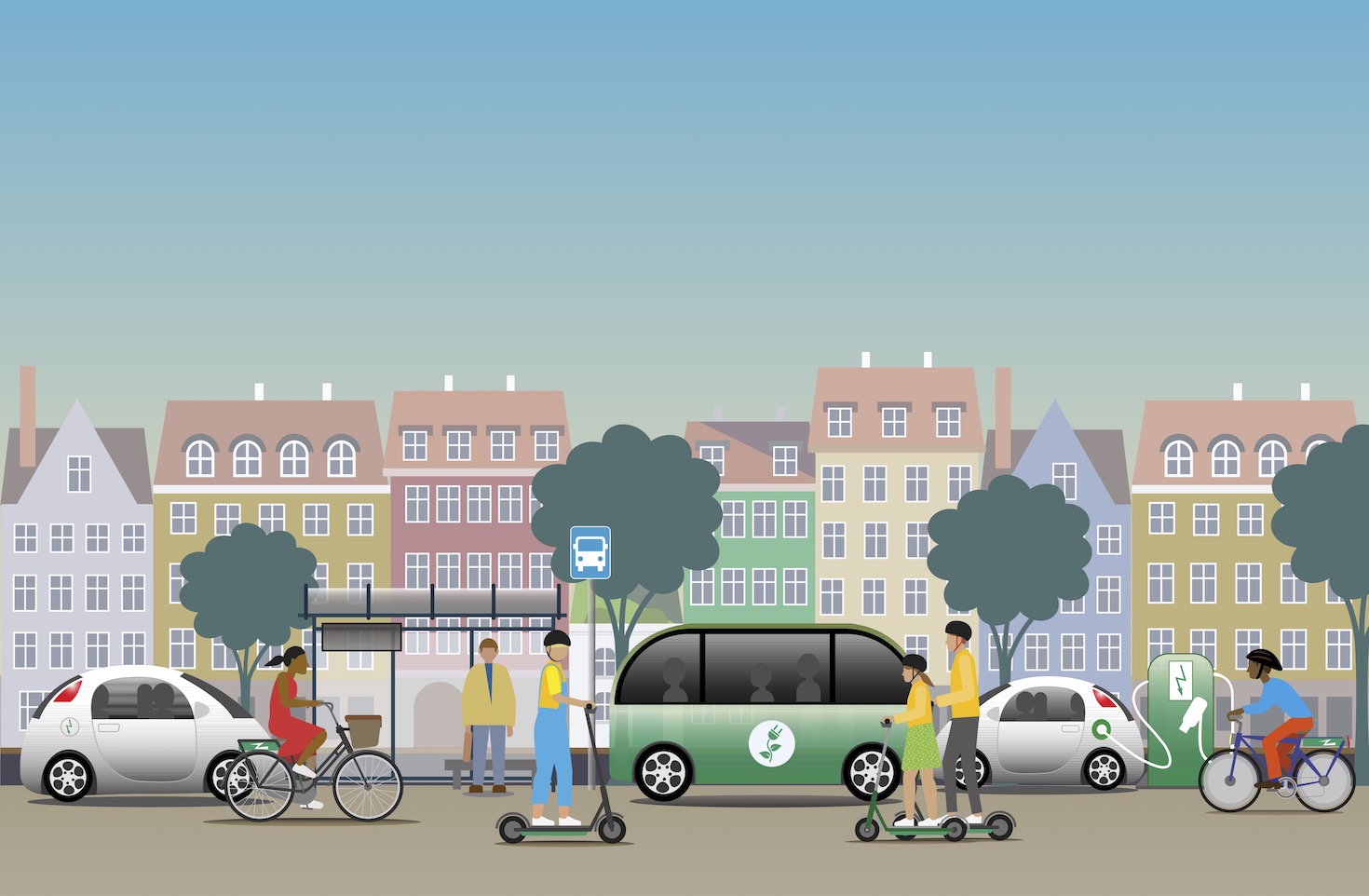[GreenBiz publishes a range of perspectives on the transition to a clean economy. The views expressed in this article do not necessarily reflect the position of GreenBiz.]
“So shouldn’t we electrify the city’s bus fleet?” the president of a major philanthropy asked me recently. “Yes, of course we do,” I replied. “We absolutely have to electrify all fleets,” I continued. “But, to a person waiting for the bus, what difference will an e-bus make if it only comes once an hour?” Not much, I would argue.
We need to electrify transportation, but electrification alone won’t help the person who is late for work and may lose their job. It won’t help the person who can’t drive but needs to get to a doctor’s appointment. Electric vehicles (EVs) won’t address transportation insecurity experienced by nearly 1 in 4 adults in the U.S.
Electrification won’t make a dent in reducing vehicular deaths. Car-centric mobility killed more than 42,000 people in 2021. Black pedestrians are struck and killed twice as often as non-Hispanic white people and Native Americans four times as often. New tax rebates in the Infrastructure Investment and Jobs Act of up to $7,500 do not make EV car ownership even remotely affordable for families earning at or below minimum wage.
The world has already spent tens of billions of dollars decarbonizing transportation. If we spend further resources solely on electrifying cars, buses and other transportation modes, at best we will achieve a clean and green transportation network that remains insufficient and inaccessible. We will manage to solidify the exclusionary forces in our transport systems.
Shared mobility is the missing tool in the global climate fight. It’s a tool that not only addresses carbon but can also redress the inequity in our transport systems.
The climate fight demands we expand the universe of possible actions. Fortunately, shared mobility — sharing journeys and sharing vehicles — has exploded across the world over the past decade.
The shared mobility market — ridehailing, on-demand shuttles, bike-share, scooter-share and other similar services — accounted for approximately $130 billion to $140 billion in global consumer spending in 2019. As of 2021, there were a half-billion car-share vehicles available globally. That number is predicted to grow to 800,000 by 2025. There are 10 million bicycles in 2,000 bike-share systems spread across 85 countries. Micromobility is predicted to reach a consumer-spending potential of $300 billion to $500 billion globally by 2030.
Shared mobility is the missing tool in the global climate fight. It’s a tool that not only addresses carbon but can also redress the inequity in our transport systems.
The shared mobility industry, including the public transportation sector, is taking the lead. Last year, the Shared-Use Mobility Center convened the Shared Mobility Action Network, which includes more than 50 public, private and nonprofit entities, to create the Shared Mobility 2030 Action Agenda. The agenda is more than just a set of principles or recommendations. It is a to-do list that commits its members to action and helps hold them accountable to achieve our collective goal to make shared mobility more reliable, easier to use and more available; more equitable and accessible; and more environmentally and economically sustainable than owning and driving a car. The to-do list includes actions such as:
- Help small cities, towns, and rural agencies to rapidly test, deploy, and scale shared mobility services.
- Test and use contextually and culturally appropriate language and communication that empowers households to choose to use more shared mobility.
- Adjust parking policies and pricing to encourage more use of shared mobility.
The Climate Champions have estimated that the world will need to spend $125 trillion to achieve net-zero carbon emissions by 2050. The largest slice of that pie needs to go to shifting power-generation systems. The next largest slice needs to go to buildings and transportation. When the world is on the brink of irreversible climate change, transportation is more reliant on polluting fossil fuels than any sector, and even the EV automakers are saying electrification is not enough — we need all options on the table to drive down emissions as quickly as possible.
The Action Agenda defines concrete steps for Action Network members to achieve measurable progress on shared mobility — the missing tool in the global climate fight. We invite others to join us in advancing this undervalued piece of the low-carbon transportation system puzzle.

IL PRIMO ECOMMERCE SPECIALIZZATO IN DELIZIE AL TARTUFO E CAVIALE – CAVIAREAT.COM
